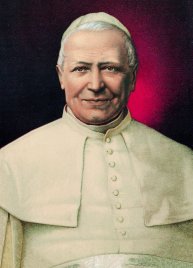Quibus Quantisque Malis on:
[Wikipedia]
[Google]
[Amazon]
 ''Quibus quantisque malis'' was a papal allocution of
''Quibus quantisque malis'' was a papal allocution of
Masonry (Freemasonry)
in the Catholic Encyclopedia, 1913, and Condemnation of Freemasonry by Church and State, in 'Freemasonry', the New Catholic Encyclopedia, 1969. and by Masonic sources as equating
online.
 ''Quibus quantisque malis'' was a papal allocution of
''Quibus quantisque malis'' was a papal allocution of Pius IX
Pope Pius IX (; born Giovanni Maria Battista Pietro Pellegrino Isidoro Mastai-Ferretti; 13 May 1792 – 7 February 1878) was head of the Catholic Church from 1846 to 1878. His reign of nearly 32 years is the longest verified of any pope in hist ...
addressed to the Consistory of Cardinals on April 20, 1849, discussing the recent political atmosphere.
Pius IX was elected Pope in June 1846, during a time of political agitation which ultimately led to the brief Roman Republic of 1849. In ''Quibus quantusque'', Pius gives a retrospective analysis of his first three years as Pope. He discusses some of the most important events, his intentions and the maneuvering of certain revolutionary elements who worked to capitalize on them. One of his first acts was to declare an amnesty for all the political prisoners held in the papal jails. Revolutionaries in Rome exploited Pius IX's concessions, and continuously stirred up the populace to exert pressure in order to obtain additional ones.And it escapes no one that many who had been generously given that pardon not only did not change their thoughts at all, as We were hoping, but instead, as they persisted each day more bitterly in their designs and machinations, there was nothing that they left undone, nothing that they did not dare, nothing that they did not try, to shake and overthrow the civil Principate of the Roman Pontiff and his government, as they had already been planning for a long time, and at the same time, they brought a most bitter war against Our Most Holy Religion.While the discourse does not specifically mention Freemasonry, Hermann Gruber, writing in the ''Catholic Encyclopedia'', lists it among the papal pronouncements against
Freemasonry
Freemasonry (sometimes spelled Free-Masonry) consists of fraternal groups that trace their origins to the medieval guilds of stonemasons. Freemasonry is the oldest secular fraternity in the world and among the oldest still-existing organizati ...
.Section VIII. Action of State and Church Authorities, iMasonry (Freemasonry)
in the Catholic Encyclopedia, 1913, and Condemnation of Freemasonry by Church and State, in 'Freemasonry', the New Catholic Encyclopedia, 1969. and by Masonic sources as equating
Freemasonry
Freemasonry (sometimes spelled Free-Masonry) consists of fraternal groups that trace their origins to the medieval guilds of stonemasons. Freemasonry is the oldest secular fraternity in the world and among the oldest still-existing organizati ...
with socialism
Socialism is an economic ideology, economic and political philosophy encompassing diverse Economic system, economic and social systems characterised by social ownership of the means of production, as opposed to private ownership. It describes ...
and communism
Communism () is a political sociology, sociopolitical, political philosophy, philosophical, and economic ideology, economic ideology within the history of socialism, socialist movement, whose goal is the creation of a communist society, a ...
. An English translation has been publisheonline.
See also
*Papal Documents relating to Freemasonry There are many papal pronouncements against Freemasonry
Freemasonry (sometimes spelled Free-Masonry) consists of fraternal groups that trace their origins to the medieval guilds of stonemasons. Freemasonry is the oldest secular fraternity in ...
* Christianity and Freemasonry
While many Christian denominations either allow or take no stance on their members joining Freemasonry, others discourage or prohibit their members from joining the fraternity.
Catholic Church
The Roman Catholic Church has been among the mo ...
* Catholicism and Freemasonry
The Catholic Church first prohibited Catholics from membership in Masonic organizations and other secret societies in 1738. Since then, at least eleven popes have made pronouncements about the incompatibility of Catholic doctrines and Freemasonry ...
* Declaration Concerning Status of Catholics Becoming Freemasons
The ''Declaration Concerning Status of Catholics Becoming Freemasons'' is a February 1981 declaration by the Congregation for the Doctrine of the Faith (CDF) under Cardinal Franjo Šeper which restated the Catholic Church's prohibition against Cat ...
References
Catholicism and Freemasonry Documents of Pope Pius IX 1846 documents 1846 in Christianity {{RC-document-stub